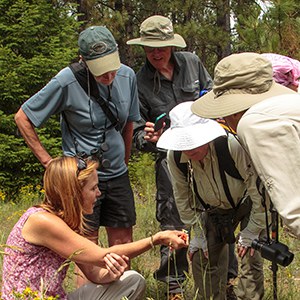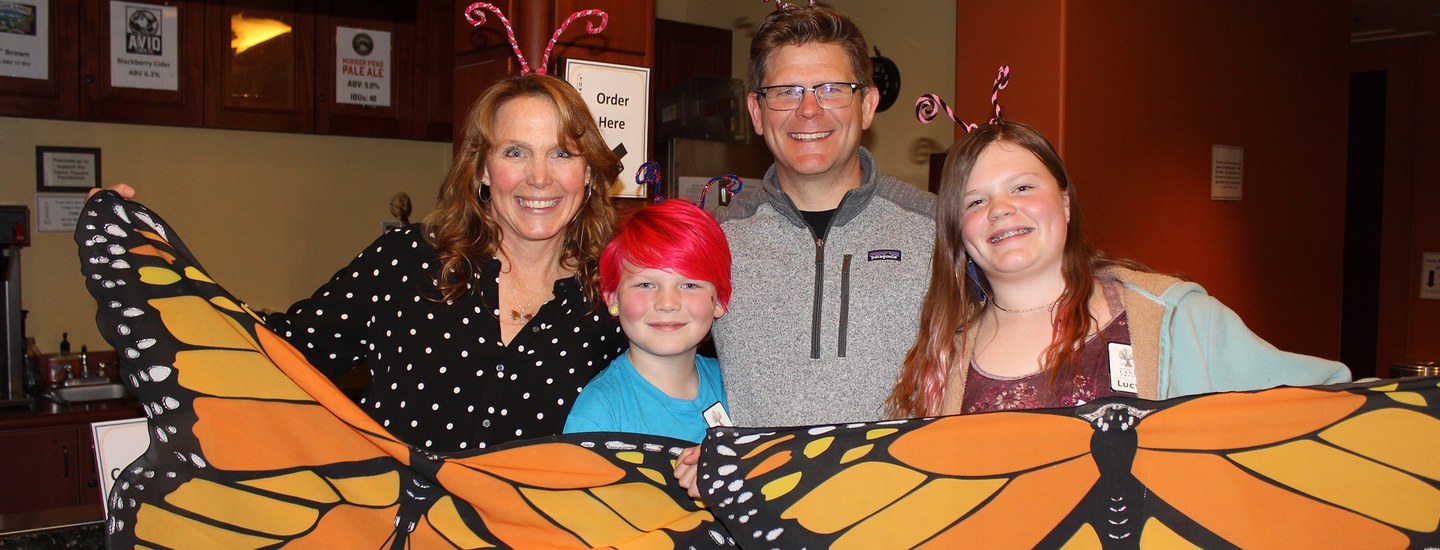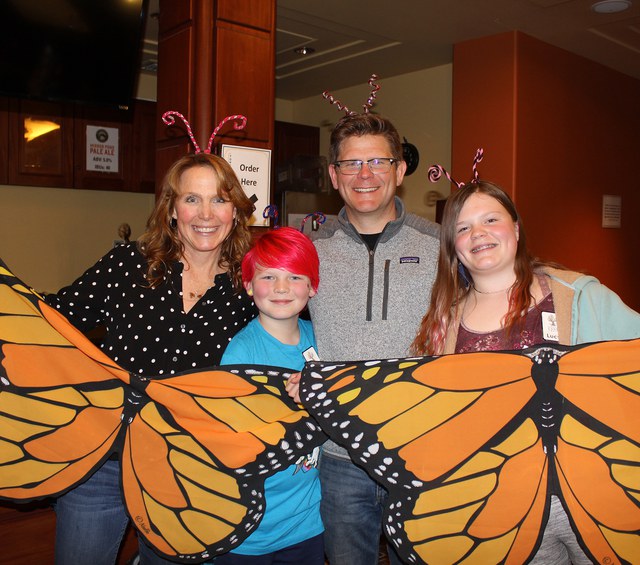Thanks to those of you who came out to our January Nature Night, Magnificent Monarchs! It was an educational and engaging presentation from animal ecologist Amanda Egertson.
Enjoy some interesting takeaways and additional resources from her talk below.
If you have trouble viewing the slides from Amanda's presentation below, click here.
Interesting facts about monarch butterflies:
- Monarch butterflies are important pollinators of the western landscape and are the original zero-waste folks, they carry their own straw -- a proboscis!
- Only about 2-5% of monarch eggs survive to adulthood.
- While the average monarch may live about 2-5 weeks, 'Super G' monarchs live 6-9 months!
- Western monarchs fly up to 40 miles a day on their 1,000-mile journey to the California coast.
- Monarchs eat local! Central Oregon is home to two species of native milkweeds and monarchs enjoy the nectar of many native plants.
- Though monarchs are solar powered, climate change is affecting their populations. Habitat loss and changes in weather are affecting the overwintering populations of monarch butterflies, not to mention how climate change is affecting the milkweed monarchs use as their host plant.
What can we do to support monarch butterflies?
Monarch butterflies play a critical role as pollinators of the Western landscape. Central Oregon is a breeding stop on their migration south. With added challenges like increased carbon dioxide levels, severe storms, and harmful chemicals the overwintering population of monarchs is in decline; but there are steps we can take locally to support them:
- Plant Milkweed: Help to return milkweed to Central Oregon (learn about milkweed's local history here). Local milkweeds die back during the winter, but that important piece of their life cycle keeps monarchs healthy and happy. Great times to plant milkweed in Central Oregon are the fall and spring. Find Milkweed Planting Instructions Here.
- Diversify your Milkweed: Plant both species of local milkweed if you can! This helps put monarch eggs in multiple "baskets" and gives them a better chance of survival! Learn more from local plant nurseries: Winter Creek Restoration + Clearwater Native Plant Nursery.
- Plant Hearty Native Blooms: Central Oregon has native blooms that will continue blossoming all season long. Providing as many flowers as we can help the monarch's journey. Thanks to Monarch Advocates of Central Oregon a list of Hearty Native Blooms can be found Here.
- Become a Citizen Scientist: Get involved with monarch advocate groups and organizations to help track, educate, and advocate for our monarchs!
- Join the Land Trust: As we continue to plant local milkweed plants throughout our Preserves we will watch for monarch eggs on the leaves of thousands of plants already planted by our magnificent volunteers!
Additional resources:
- Amanda's go to butterfly guide, Butterflies of the Pacific Northwest
- A close up guide book for regional butterflies, Butterflies through Binoculars: The West
- Guide book to creating a butterfly beneficial garden, Gardening for Butterflies, The Xerces Society
- Local monarch partner organization, Monarch Advocates of Central Oregon
- Another great group of monarch advocates, Southern Oregon Monarch Advocates
- A place to start your journey as a citizen scientist, Monarch Watch
- Find even more incredible resources from the Monarch Joint Venture or the Xerces Society
- For more in-depth reading, Life Histories of Cascadia Butterflies

is the Deschutes Land Trust’s Stewardship Director and oversees the management of all of the Land Trust's protected lands. Amanda has a B.A. in Elementary Education and Music and an M.S. in Animal Ecology, with a research focus on songbirds and butterflies. She leads butterfly tours (often with her kids Lucy and Eli as co-leaders) on Land Trust Preserves and is guiding the Land Trust's work with regional monarch conservation.
Learn more about:
- Learn more about butterfly walks + hikes with the Land Trust
- The Land Trust's Nature Night series.


